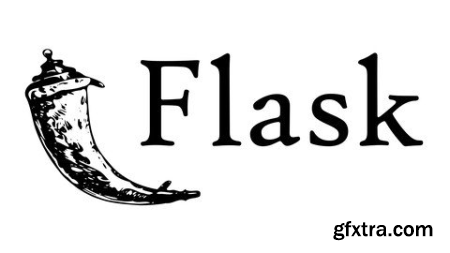
Published 3/2023MP4 | Video: h264, 1280x720 | Audio: AAC, 44.1 KHzLanguage: English | Size: 404.73 MB | Duration: 0h 54m
Become expert in flask! What you'll learn Flask Framework URL Building,HTTP Methods Flask Framework Overview And Environment Go from Bner to Advanced in Flask Framework, Flask Framework Basics To Advanced concepts Flask SQLite for database Flask Framework Routing,Variable Rules Flask Framework URL Building,HTTP Methods Requirements Little understanding about python Description Software is everywhere. We interact with it in our daily life activities knowingly or unknowingly. Each when you use an app like Instagram, send an instant message, or check the stock prices on your phone, you're using an API. The world still needs more software to make our life easier. But creating great software is hard for everyone and yet developers need to master more than one skill.This course will guide you in creating simple, intermediate, and advanced REST APIs including authentication, deployments, databases, and much more.We'll start with a Python refresher that will take you from the very basics to some of the most advanced features of Python—that's all the Python you need to complete the course.Using Flask and popular extensions Flask-Smorest, Flask-JWT-Extended, and Flask-SQLAlchemy we will dive right into developing complete, solid, production-ready REST APIs.We will also look into essential technologies like Git and database migrations with Alembic.You'll be able to...Create resource-based, production-ready REST APIs using Python, Flask, and popular Flask extensions;Handle secure user registration and authentication with Flask.Using SQLAlchemy and Flask-SQLAlchemy to easily and efficiently store resources to a database; andUnderstand the complex intricacies of deployments of Flask REST APIs.Use Docker to simplify running and deploying your REST APIs.But what is a REST API anyway?A REST API is an application that accepts data from clients and returns data back. For example, a REST API could accept text data from the client, such as a username and password, and return whether that is a valid user in the database.When developing REST APIs, our clients are usually web apps or mobile apps. That's in contrast to when we make websites, where the clients are usually the users themselves.Together we'll develop a REST API that not only allows clients to authenticate but also to store and retrieve any data you want from a database. Learning this will help you develop any REST API that you need for your own projects!All the best. Keep Learning and keep moving ahead.Who this course is for:Developers curious about microservices and APIDevelopers curious to learn developing web apps using Flask.Full stack developer, backend developer, frontend developer, data scientist, machine learning eeerIf you have any doubt your queries will be solved within 24 hours. Overview Section 1: Introduction Lecture 1 Introduction Section 2: Lesson 1 Lecture 2 What is flask? Section 3: Lesson 2 Lecture 3 Environmental setup Section 4: Lesson 3 Lecture 4 Basic flask app Section 5: Lesson 4 Lecture 5 Flask routes Section 6: Lesson 6 Lecture 6 URL building Section 7: Lecture 7 Lecture 7 Static file Section 8: Lecture 8 Lecture 8 Flask SQLite Section 9: Lecture 9 Lecture 9 Flask templates Bners who are interested in python webapp developement.,Bners who are interested in learning flask framework HomePage:
TO MAC USERS: If RAR password doesn't work, use this archive program:
RAR Expander 0.8.5 Beta 4 and extract password protected files without error.
TO WIN USERS: If RAR password doesn't work, use this archive program:
Latest Winrar and extract password protected files without error.


